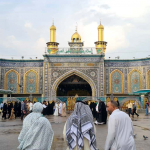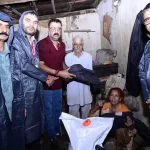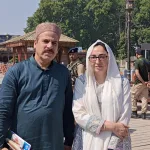National Trust defines heritage as the travelling to experience places, artifacts, and activities that authentically represent the stories and people of the past and present.It includes cultural, natural and historic resources. Naturally, this movement brings to the mind as to what can be the benefits of heritage tourism to the host population.It can be argued that heritage tourism is a niche segment that leads to development of the infrastructure of the destination area. This has an added importance for the hosts as it brings to them the facilities that may not be available at the other destinations that have other types of tourism potential. The specialized developmental techniques in collaboration with the international agencies adds to the image of the destination area.Heritage tourism products have the tendency to be viewed as high end attractions .Commodification is the term usually associated with the tourism products but when seen in the light of heritage tourism it has to be refined. No doubt tourism is the representative of the change from the routine and accepted norms take the back seat. It involves the short term stay of the visitors at the destination but a rule can be associated with it. That is short stay ,maximum spending. It is a reality that strangeness and familiarity affects the product delivery and shapes the paradigm of economics. Strangeness develops curiosity and this leads to influx to witness this peculiarity. Economic viability can be seen in the backdrop of the tourism and arts industries play a considerable role in shaping the tourism product and give ample opportunities to the locals to make it a game changer.Jammu has an added advantage that it has heritage assets located in both urban and rural areas and as such dispersion of the economy and the elongation of the circuit will surely increase the length of stay of the tourists; infusing a sense of economic boom for the hosts. The presence of heritage both tangible and intangible make it incumbent upon the policy makers to seek the opportunities to establish the co operative units to manufacture the handicrafts with the involvement of the local Panchayats to make the living heritage sustainable. Rural historic sites have an added advantage as they pose an opportunity to engage the hosts in its interpretation. Establishment of interpretation centers for heritage with the active involvement of the panchayats and village bodies can be a game changer. Global experience reveals that national trusts work towards the heritage preservation and heritage tourism activities by active support of locals and the administration .Heritage tourism planning has to be in tune with the economic benefits. The issues pertaining to monitoring and evaluation are becoming important in terns of heritage conservation and these need to be visualized in terms of conservation issues. Heritage tourism should always focus on community goals and these include: To provide the necessary resources for paying the capital and expenditure related to various areas of heritage development. To generate the public opinion and awareness for the acceptance of heritage conservation.To generate employment and create economic development.In the light of these issues it is important to go for Heritage Impact Assessment. Wide range of impacts need to be underlined for the effects to be understood in totality. Jammu heritage can be made to achieve the desired goals in terms of marketing strategies if the following employment and economic development benefits are kept in mind. These include -Increased resources for the protection and conservation of natural landscape and heritage assets, development of local arts and handicrafts, exploring the cultural potential of the community, revival of traditional living tradition, Improved infrastructure, economic development, increased visibility of the community leading to allied economic development, enhanced civic pride to develop better aesthetics and environment,Increase tax base on traditional resources, New heritage induced employment opportunities, Increased income from the cultural property and allied heritage assets.
Internalising Heritage

Sign Up For Daily Newsletter
Be keep up! Get the latest breaking news delivered straight to your inbox.
By signing up, you agree to our Terms of Use and acknowledge the data practices in our Privacy Policy. You may unsubscribe at any time.
Leave a Comment Leave a Comment
Stay Connected
Latest News
Recent Posts
- J&K gets 190 additional MBBS Seats
- All educational institutions to remain closed tomorrow in Kashmir: Div Com
- Shri Mata Vaishno Devi Shrine Board extends relief to landslide affected families
- Waheed Jeelani congratulates Dr. Darakhshan Andrabi on the historic renovation of Hazratbal Shrine
- Jio surpasses 500 million user base ahead of 9th anniversary, announces series of offers







